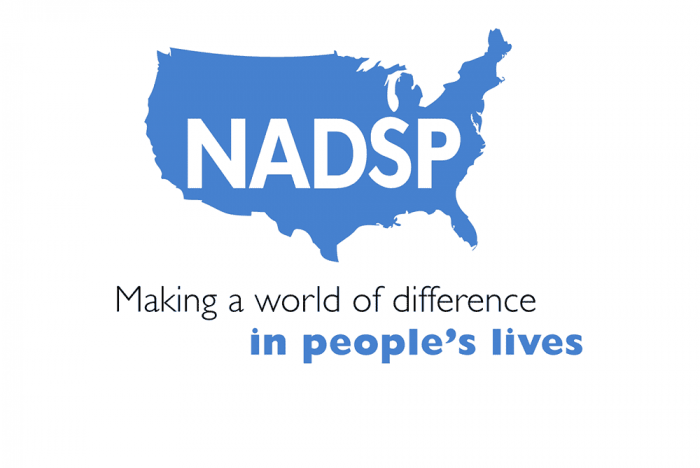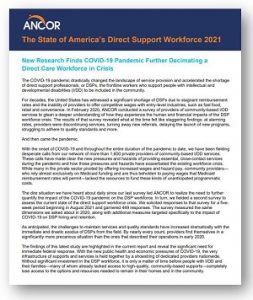Source: York Dispatch, Oct. 13, 2021
Pennsylvania’s legislators and governor should be ashamed of themselves. They are not taking care of the people of this state, and it doesn’t seem to bother anyone in the legislature unless it affects them directly.
My children are the most important people in the world to me. My only daughter, Kate, has an intellectual disability and is nonverbal. She sometimes wanders at night. She is at risk for falls. She doesn’t understand ‘stranger danger,’ and she must have help for all her personal care. This means someone has to monitor her activity 24/7. And she can’t be “dropped off at some program” (which is what a legislator once suggested to me), because there simply aren’t enough staff for those programs.
You might ask why we don’t just hire a direct support professional (DSP). Well, there aren’t any to hire. Every week, I call providers. Every week, I’m told “we don’t have staff.” And the reason there isn’t enough staff is that the state does not allocate enough funding to provide the same hourly wage for providers that Pennsylvania pays its own DSPs. Equal pay for equal work is just lip service in Pennsylvania.
The system is broken and it’s just getting worse. I know it’s because government has created this problem, and that makes me angry. We should be progressing. Instead, the system is barely surviving, and that’s the same for my beloved daughter.
So I am Kate’s staff. I am her DSP. I took money out of my retirement fund — paying a stiff tax penalty as a result — so I could give up my career to care for my daughter. That’s what moms do. We care for our children.
I work two part-time jobs, relying on family members and friends occasionally to help with Kate, but a full-time, trained DSP is what she needs. My 88-year-old mom needs my support, too, since we lost my dad during the last year. But I cannot provide that support because Kate depends on me.
What’s really bad is that Kate qualifies for more than 65 hours of support per week. That help would allow me to work full-time again and have the energy and financial means to care for Kate in the hours there aren’t any DSPs available. And there doesn’t appear to be an end in sight.
Kate’s moved from provider to provider, but when COVID hit she began regressing terribly because we could not find anyone to work with her. There is a chance we could put Kate in a group home, but even thinking about that option kills my soul. She’s my daughter — just like anyone else’s daughter — and like every parent reading this, I just want the best for my daughter. Some people need more care than others, and Kate’s one of those who needs more.
Every “fix” we have had is temporary. The only real way to fix this problem is for providers to hire more DSPs. But they can’t, because the state simply doesn’t provide the funds for them to do so. What’s worse, Pennsylvania pays its own DSPs (in its state centers, aka institutions) significantly more. That’s in direct conflict with the “equal pay for equal work” principle that Pennsylvania says is so important here.
I won’t give up. I was raised to keep fighting for the people I love. And politicians need to realize that people like Kate and I can vote. It’s shameful that they are not doing their jobs, fulfilling their duties, for people like my Kate. There’s way too much self-serving going on. Legislators push for $15 minimum wage for the average Pennsylvanian, but they pay DSPs significantly less. That’s what we’re dealing with. And sons and daughters are bearing the brunt of those decisions. My daughter is bearing the brunt of them.
Do I sound angry? Well, I am. I’m frustrated, disheartened, disillusioned, and appalled. This is a juggernaut for parents.
Thousands of Pennsylvanians are waiting for services as I type this. They are sons and daughters whose parents love them and want them to live a fulfilling life. They are like my Kate. They deserve to be cared for. And I’ll keep fighting for my daughter … for all these sons and daughters. Because that’s what moms do.
— Sandi Shaffer is the mom of Kate and is a 2017 graduate of The Children’s Institute of Pittsburgh. She is an advocate and task member of The PA Family Task Force, a statewide advocacy taskforce on behalf of families with children and adults with disabilities. Sandi has advocated for Kate and others in the intellectual disability/autism community for more than two decades. She and Kate live in Westmoreland County.


















